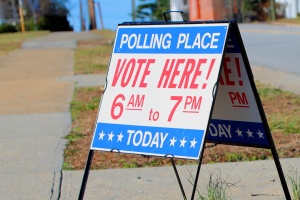Voting Laws: Do They Continue to Be Discriminatory?
September 2nd, 2016

Many states have attempted to pass restrictive voting legislation since President Obama’s reelection campaign in 2012.
If you watch the news or television at all, then you have undoubtedly seen the recent presidential campaigns lambasting each opponent. Recently, Donald Trump claimed that if he loses Pennsylvania in the election, it would only mean one thing – voter fraud. He said in no uncertain terms that if Hillary Clinton wins the state, then cheating will be the reason.
This particular statement seems to have struck a chord with the nation as pundits have spoken out against such accusatory language. What resonates with so many, it seems, is not so much the fact that voter fraud does not actually occur in any meaningful way, but that placing additional restrictions on voting when they are not necessary harkens back to discriminatory practices seen during the Jim Crow era.
Restrictive Voting Laws Adopted Since 2012
Four years ago, during the last presidential election, our country saw an alarming influx of proposed voting laws. For example, laws passed include the following:
- Photo ID requirements
- Proof of citizenship
- Making voter registration more difficult
- Reducing early and absentee days
- Making it harder to restore voting rights
What is so alarming about the 2012 voting law influx is that it could be considered a response to the country’s first African American Presidential candidate. It is not a far stretch to assume there is at least some nexus between more restrictive voting requirements and President Obama’s bid for reelection.
Fortunately, we have seen fewer laws inhibiting an individual’s ability to vote for the 2016 election but again, we do still see 77 laws proposed that would restrict access to voting. 17 states have passed legislation since our last presidential election that placed increased restrictions on voting. Those states are Alabama, Arizona, Georgia, Indiana, Kansas, Mississippi, Nebraska, New Hampshire, North Carolina, North Dakota, Ohio, Rhode Island, South Carolina, Tennessee, Texas, Virginia and Wisconsin. Among the laws, we again see ID requirements, early voting cutbacks, and registration limitations.
Who is Affected By Voting Laws?
Whether or not voting laws and voter ID restrictions are discriminatory is a point of debate. Many argue that the historically disadvantaged and disenfranchised have a difficult time meeting tougher requirements. Often, this demographic is constituted of the poor and minorities. For example, if a person does not have a car, then it is more difficult for him or her to get to the polls, and thus reducing one’s ability to vote at convenient times and may impact his or her ability to vote at all. Additionally, photo IDs can cost money, not to mention the time and expense required in obtaining them outside of the cost of the ID itself.
Essentially, there is an ongoing argument as to whether voter fraud occurs with enough frequency to require additional legislation protecting the sanctity of voting and if the answer is no, why then is there a push for such legislation?
The debate surrounding voting laws will undoubtedly be ongoing throughout this election year and beyond. While we do not contest the need for authentic votes, we must ensure that voting laws are not, in practice, echoing a darker time in our country’s history. As the laws continue to change, Universal Life Church will remain dedicated to providing you with the most up to date information.
(image courtesy of Dodgerton Skillhause)


